Rugby fever lighting up Malvern College Hong Kong's Co-Curricular Activities
[Sponsored Article] As part of the build-up to August 27, the first day of the first term at Malvern College Hong Kong, the school organised a “rugby experience day” in late March to introduce incoming and prospective students to the basics of the game.
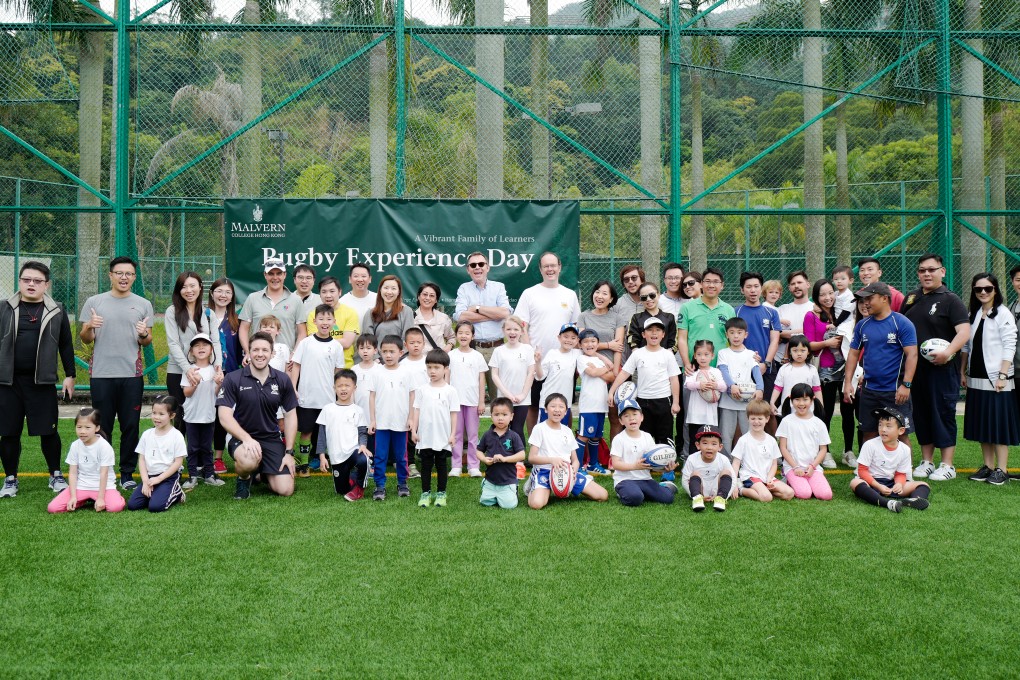
[Sponsored Article]
As part of the build-up to August 27, the first day of the first term at Malvern College Hong Kong, the school organised a “rugby experience day” in late March to introduce incoming and prospective students to the basics of the game.
Led by coaches from the Hong Kong Rugby Union, two action-packed sessions for boys and girls aged five to 12 taught the essentials of handling, passing, positioning and support play, with the emphasis on fun and getting everyone involved.
Alongside that, the event was also a chance to let parents see the value of sport for all youngsters, not just as physical exercise, but also as a way of developing important qualities like teamwork, discipline and leadership.
“A Malvern education has to be a good balance of academic excellence and other co-curricular activities,” says the school’s founding headmaster Dr Robin Lister. “That includes arts, drama, orchestra and coding, as well as a wide range of sports, because we want to give children as many new opportunities as possible outside the classroom.”
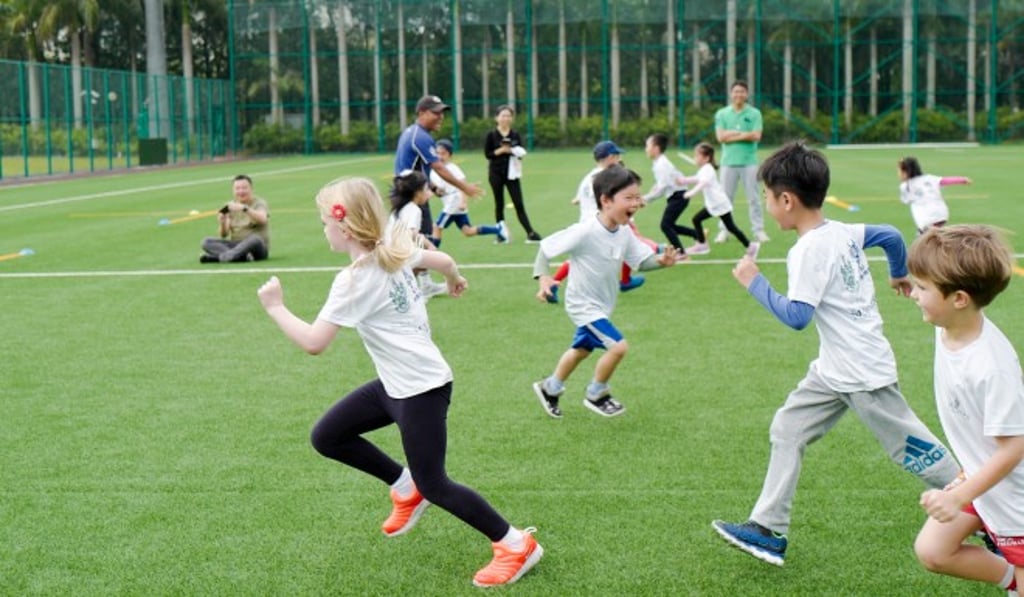
Besides rugby, plans are in place to offer football, cricket, hockey, swimming and basketball, with a view for age-group teams taking part in local inter-school competitions and outstanding individuals even going on to national level.
“The aim is to build towards that,” says Lister, noting that other sports can always be considered depending on interest and demand. “I believe quite passionately that a good education has to be broad and that sport is one of the critical elements contributing to a fulfilling, successful and happy life.”
To this end, the school’s system will see every child allocated a tutor who, if necessary, will be expected to encourage involvement and explain the all-round benefits. Whatever the chosen sport, the basic approach will be to get kids started early and, as with the rugby day, ensure they have proper training and supervision every step of the way.
“Before coming to Hong Kong, I wanted to do more to support girls rugby,” says Lister, who was previously a house master at Malvern College in the UK. “But I’ve found it’s already well established here, which will make it easier for us to take things forward.”
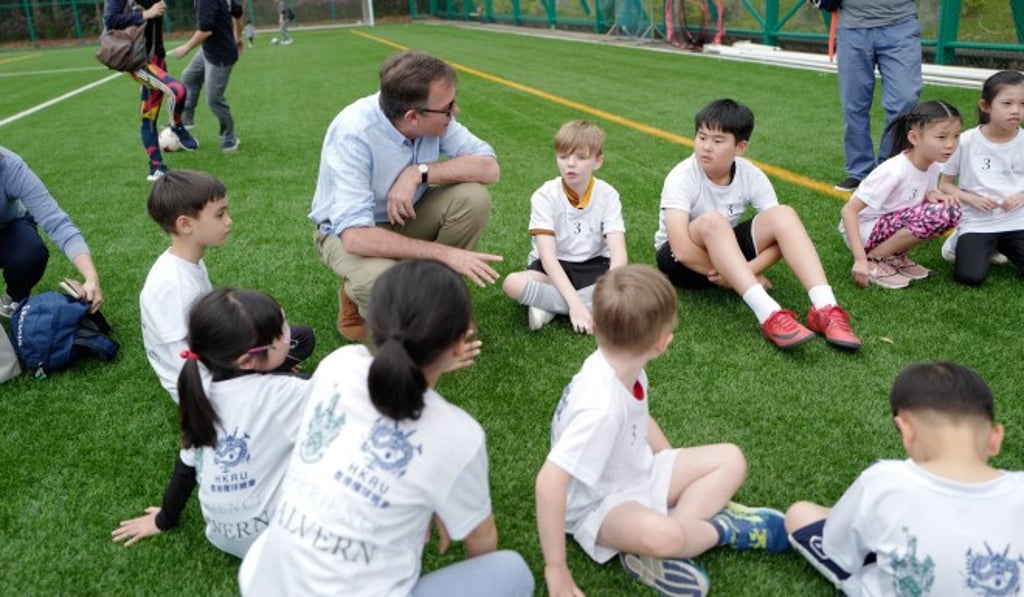
More generally, he adds, work on the school’s new purpose-built campus, next to the Science Park, is slightly ahead of schedule. The major construction projects, including the classrooms, library and swimming pool, are largely complete, and attention is now turning to things like fitting out and furniture.
The recruitment of teachers, with a good balance of men and women, has also gone well, meaning that everything is on track to welcome the first intake of around 400 pupils - aged five to 13 - in Years 1 to 9.
English will be the main medium of instruction, and all classes are planning to follow the IB (International Baccalaureate) curriculum, with some adjustment as appropriate to take account of expectations and practicalities in Hong Kong.
For instance, there will be daily Putonghua lessons, taught by native speakers, using a methodology which emphasises interaction rather than rote learning. Other languages such as German and Spanish will also be available in due course. And there will be a suitable focus on STEM (science, technology, engineering and maths) to make sure pupils keep pace with the latest developments and are ready for the future that awaits them.
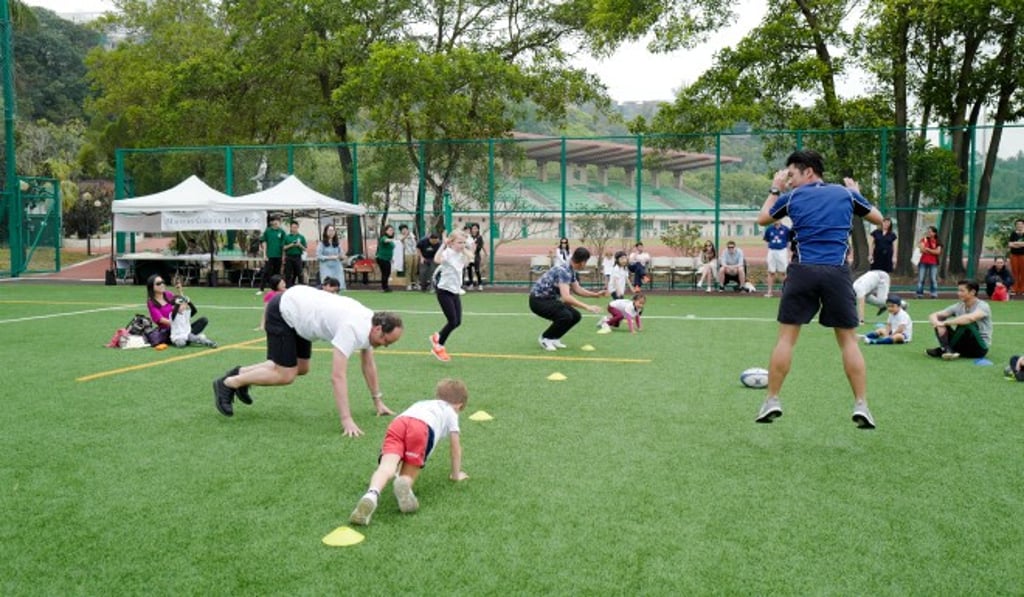
“At this point, the government wants us to concentrate on students with foreign passports but, of course, we will also have some children from local families,” Lister says. “We are already starting to think about next year’s intake.”
Looking ahead, the plan is to add an extra Year every 12 months to take students up to the age of 18, bringing total numbers to roughly 1,000.
In other respects, the school’s ethos will expect children to put a good deal of effort into their studies, but will not overload them with homework.
“I don’t think that’s healthy, and research now indicates it doesn’t help overall performance,” Lister says. “The tutors, though, will be charged with keeping a close eye on progress and providing pastoral care. The brief I give them is to find an area where a child excels. When that happens, it filters through their whole education.”
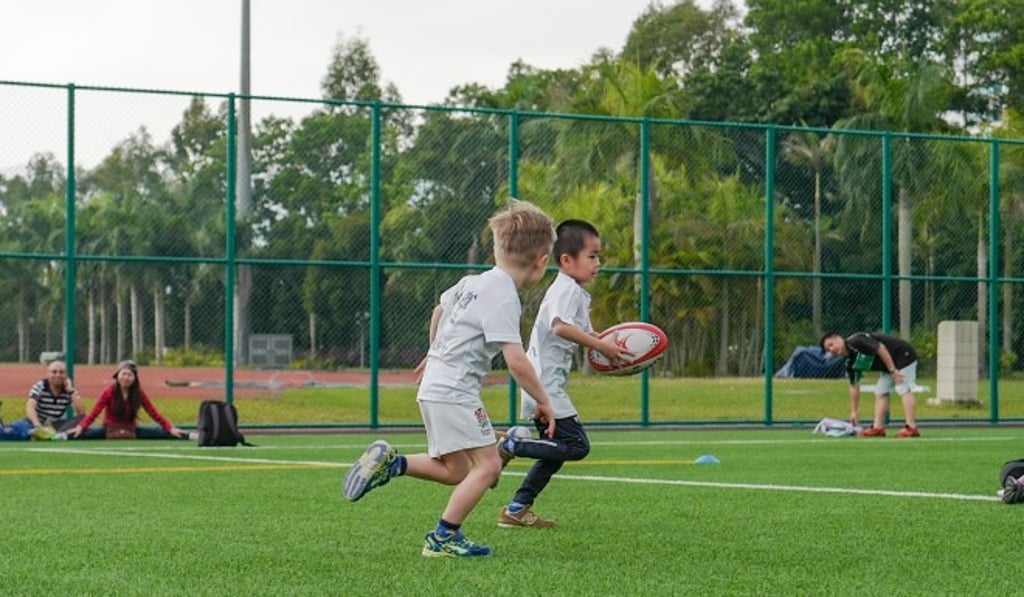
Parents and students will be welcome to visit the school’s campus once the final sign-off and permits have been issued, probably in mid-May.
“The first cohort of students in a new school is very special,” Lister says. “Therefore, we have a carefully structured introductory programme, which also includes parents, so everyone is familiar with how things work and no one is thrown in at the deep end.”